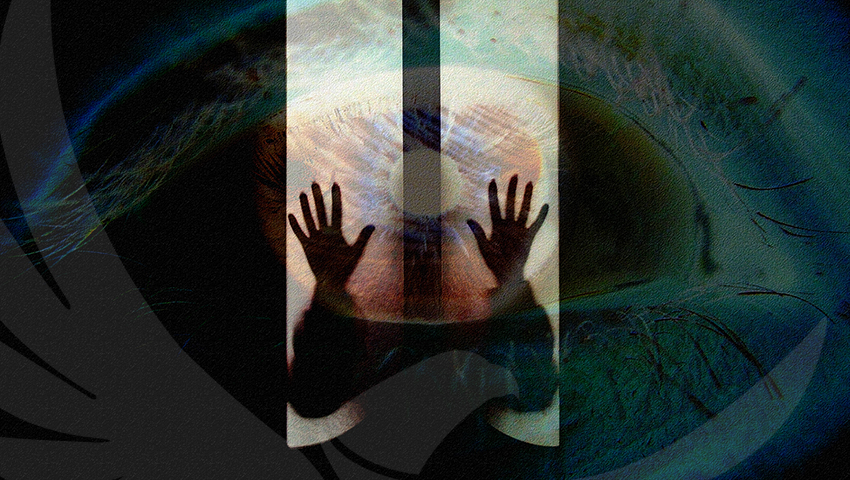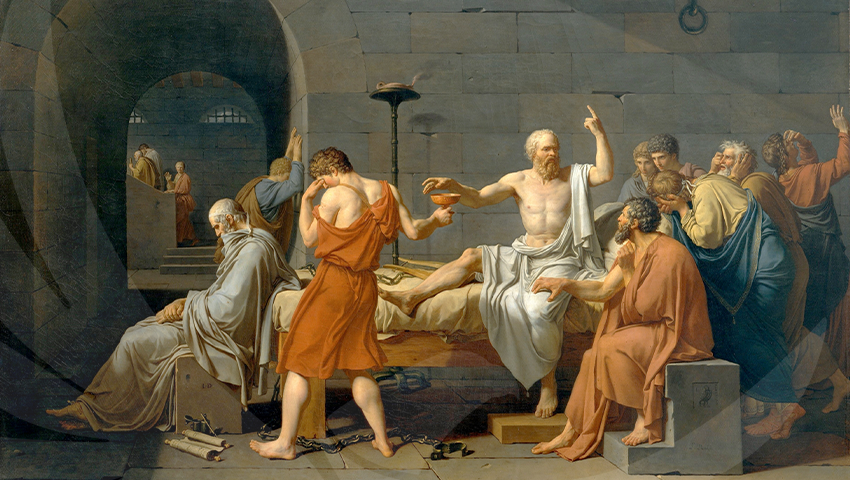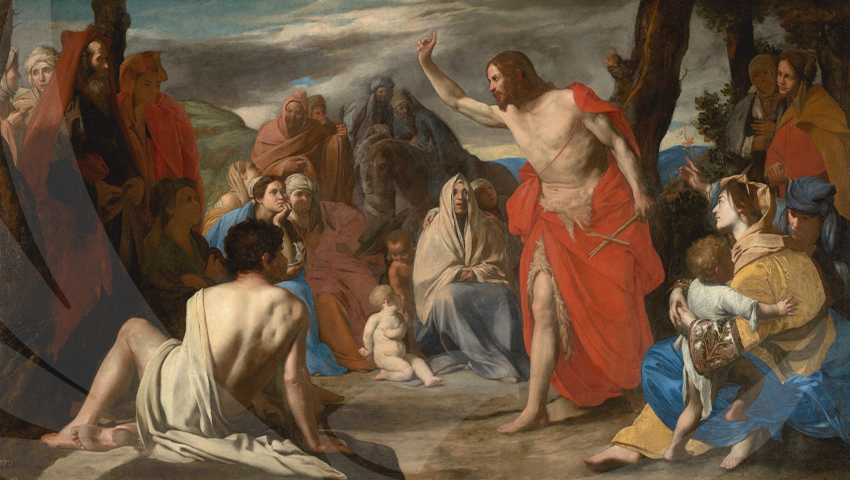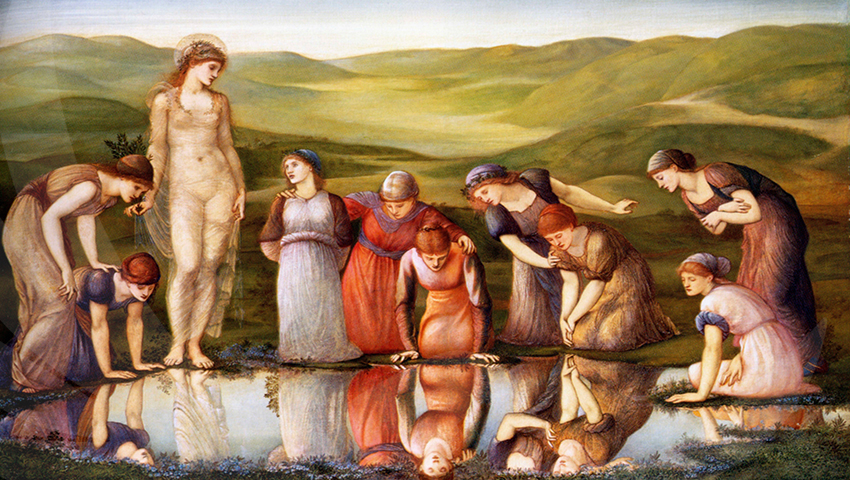قبل كل شيء، يجب أن نعرف من نحن، من أين أتينا، إلى أين نحن ذاهبون، ما هو الغرض من وجودنا، لماذا نحن موجودون، ما الذي نوجد من أجله.
العمل على الأكل ضروري بلا شك، لكن هذا ليس كل شيء. لأي غرض يجب أن نأكل؟ نحتاج أن نأكل لنعيش، لكن لماذا يجب أن نعيش؟ ما هو الهدف؟
العيش من أجل العيش، دون معرفة لماذا يجب أن نعيش هو أمر سخيف تمامًا. نحتاج إلى معرفة سبب وجودنا، ولماذا نحن في هذا العالم، وما سبب وجدنا في هذا العالم.
إذا لاحظنا شخصًا، فهذا لا يعني أننا نعرفه. نحن بحاجة لنتعرف عليها.
يتكون الجسم المادي من أعضاء، والأعضاء من خلايا، والخلايا بجزيئات، والجزيئات من ذرات. إذا تحللت ذرة، فإننا نطلق الطاقة؛ هذا واضح. لذلك، في التوليف الأخير، يتم تلخيص الجسم المادي في أنواع وأنواع فرعية مختلفة من الطاقة.
ما هو أبعد من الجسد المادي، هل سيوجد شيء، أم أننا مجرد حفنة من اللحم والدم والعظام؟ مستحيل! نحن شيء مختلف أو لدينا شيء مختلف، لكن ماذا سيكون؟
– 2كُتِب العديد من كتب علم النفس عن قوة الإرادة ، ولكن عن أي إرادة يشيرون؟ يجب ألا ننسى أنه يوجد داخل أنفسنا آلاف الإرادات، وأن كل واحد من الشياطين الحمر لسيث لديه إرادته الخاصة، فماذا في ذلك؟
تتناقض الإرادات مع الإرادة في داخلنا، وتتعارض العقول الكثيرة مع العقول. نحن نعيش داخل أنفسنا في صراع أبدي، نحن مليئون بالتناقضات الرهيبة. إذا تمكنا من رؤية أنفسنا أمام مرآة كاملة الطول، تمامًا كما نحن، فسنهرب في حالة من الرعب.
نحن مليئون بالتناقضات المخيفة. الأنا، على سبيل المثال، من المركز الفكري يقول في لحظة معينة: “سأدرس كتابًا”. فجأة يدخل الأنا من مركز الحركة ويهتف: «لا! هل تفتح الكتب في هذا الوقت؟ لا، من الأفضل أن أمشي، هناك على دراجة». لكن فجأة، عندما يستعد الشخص لأخذ دراجته، يظهر آخر، أنانة المعدة، وتقول: “لا ، لا ، لا أنا ذاهب لتناول الطعام ؛ تناول الطعام أولاً ، ثم سيأتي كل شيء آخر.
أي أننا مليئون بالتناقضات الرهيبة. وفجأة نقول للمرأة التي نحبها: «أنا أعشقك يا حياتي، سأبذل عمري من أجلك يا حبيبتي …». ثم لاحقًا نقول نفس الشيء لسيدة أخرى. اذن اين نحن؟ السيدة لديها خصوصية كبيرة وتلبك محبيها؛ وبعد ساعات، قد تكون تبتسم لخاطب آخر أيضًا، فإذًا؟ يا لها من تناقضات رهيبة! أحيانًا نعطي الكلمة في عمل تجاري، وفجأة نتراجع: “لا، قالت أمي بالتأكيد لا”.
ليس لدينا استمرارية الهدف، أصدقائي الأعزاء. في إحدى المرات نفكر في شيء، وفي وقت آخر، في شيء آخر. ننظر إلى الجريدة لنكتشف الفيلم الذي سيعرضونه، ونستعد للذهاب إلى السينما، لكن يحدث أن أحدهم أخبرنا أن الأمور أفضل في سينما أخرى، ولم نعد نذهب إلى أين كنا ذاهبون، ونأخذ العربة ونذهب إلى مكان آخر. يأتي مريض لرؤية الطبيب: «يا دكتور، أعاني من ألم شديد هنا، في جانب قلبي ولا يؤلمني … كبدي يؤلمني ولا يؤلمني … أشعر بألم. هنا، ولكن كما في بعض الأحيان أشعر به هناك …». ثم يجيب الطبيب: “خذ هذا العلاج والأحسن ان لا تأخذه …”.
هكذا نحن جميعًا، أصدقائي الأعزاء، مليئون بالتناقضات المخيفة، وليس لدينا استمرارية في الأغراض. بدأنا الدراسة في الجامعة لنصبح مهندسين. ما مدى سعادتنا بالذهاب إلى الصفوف الأولى والكتاب بين أيدينا! “نحن طلاب هندسة” – نقول -، وبعد فترة، “بالطبع، من الأفضل أن أصبح طبيب”؛ ثم التحقنا بكلية الطب وبدأنا دراسة الطب بحكمة شديدة. في أحد الأيام العديدة التي نعود فيها إلى المنزل ونخبر أمي وأبي: “لا، أنا لست جيدًا لطبيب، إجراء تشريح للجثث ليس ممتعًا على الإطلاق، وأسوأ شيء هو أنني اضطررت لتناول الطعام على بطن ميت.
خاتمة يا أصدقائي الأعزاء: ولا طبيب أيضاً؛ وهكذا، انتهى بنا المطاف، هناك، كموظفين في مكتب صغير إذا كنا محظوظين، أو خلف مكتب مخزن متواضع.
يا لها من تناقضات رهيبة!، أصدقائي الأعزاء، كل ذلك بسبب عدم استمرارية الهدف. لكن لماذا التناقضات الرهيبة؟ ببساطة، إلى تعدد الأنانيات الذي لدينا في الداخل. يوجد بداخلنا أنانيات الطب، أنانيات المهندس، أنانيات الخريج، أنانيات التاجر وحتى المتدربين لسحرة. ما هي أنواع الأنانيات التي تسكن داخلنا؟ لدينا نوع من حديقة حيوان متنقلة. ما أقوله لكم ليس لطيفًا، أليس كذلك؟ لكن الأمر هكذا!
3.- لسوء الحظ، يعترف الناس بسهولة أن لديهم جسدًا ماديًا، لكن من الصعب عليهم فهم علم النفس الخاص بهم، وقبوله بطريقة خام وحقيقية. يقبلون أن لديهم الجسد المادي لأنهم يستطيعون رؤيته ولمسه والشعور به. لكن علم النفس مختلف قليلاً، متباين قليلاً. بالتأكيد، نظرًا لأنهم لا يستطيعون رؤية نفسهم، فلا يمكنهم لمسها، والشعور بها، فهو بالنسبة لهم شيء غامض لا يفهمونه.
عندما يبدأ شخص ما في مراقبة نفسه، فهذه علامة لا لبس فيها على أنه يعتزم التغيير. عندما يراقِب شخص ما نفسه، فإنه ينظر إلى نفسه، فإنه يشير إلينا أنه أصبح مختلفًا عن الآخرين.
في ظروف الحياة المختلفة، يمكننا اكتشاف أنفسنا. من أحداث الوجود المختلفة يمكننا استخراج المادة النفسية اللازمة لإيقاظ الوعي. فيما يتعلق بالناس، سواء في المنزل أو في الشارع أو في الميدان أو في المدرسة أو في المصنع، وما إلى ذلك، تظهر العيوب التي أخفيناها بشكل عفوي، وإذا كنا متنبهين ويقظين مثل الحارس في زمن الحرب، إذن نحن نراهم. تم اكتشاف العيب، ويجب فهمه بشكل كامل على جميع مستويات العقل.
4.- في علم النفس الثوري، تصبح الحاجة إلى تحول جذري واضحة لنا، وهذا ممكن فقط من خلال إعلان حرب قاسية وبلا رحمة حتى الموت على أنفسنا. نظرًا لعدم وجود فردية حقيقية فينا، فمن المستحيل أن يكون هناك استمرارية للأغراض. ما تؤكده أي أنانة في لحظة ما على وجه اليقين لا يمكن أن يكون له أي جدية، نظرًا للحقيقة الملموسة المتمثلة في أن أي أنانة اخرى يمكنها أن تؤكد العكس تمامًا في أي لحظة. أخطر شيء هو أن هناك من يؤكد قطعيا أنها تكون هي نفسها دائمًا. هذا المرء في حد ذاته ليس أكثر من آلة تعمل أحيانًا كوسيلة لهذا الأنا أو لآخر.
5.- هناك أشخاص يتعاملون مع الآخرين بلطف، فهم لائقون. هناك أشخاص يصنعون صداقات مع أشخاص آخرين. هذا هو الجانب العام أو الظاهر -يمكن أن نقول- ولكن هذا ليس كل شيء. مع العلم أن لدينا نفسية داخلية، لا يكفي مجرد معرفة كيفية التصرف بشكل لائق مع الآخرين، فلا يكفي مجرد عطر الصداقة من وجهة النظر الخارجية.
ما هو سلوكنا الداخلي تجاه الآخرين؟ عادة، أولئك الذين يقدمون الصداقة لشخص آخر لهم وجهان: الخارج والداخل. يبدو أن الخارج رائع، لكن الذي في الداخل، من يدري؟
هل نحن على يقين من أننا لا ننتقد الصديق الذي أعطيناه كل هذا التقدير؟ هل نحن على يقين من أننا لا نشعر بأي كراهية لبعض جوانبه؟ هل نحن على يقين من أننا لا نجتذبه إلى ذلك الكهف الذي في أذهاننا لنعذبه، ونسخر منه ونحن نبتسم له بلطف؟
كم من الناس الذين يحترمون شخصًا ما، في داخلهم، لا يتوقفون عن انتقاد ذلك الشخص الذي يحترمونه، حتى لو لم يخرجوا نقدهم، ويسخرون من أصدقائهم المقربين، حتى لو ابتسموا بلطف في وجودهم.
حقًا، يجب أن نكون أكمل وأكثر استقامة. دعنا نحاول للحظة وضع ساعتين في حركة متساوية: الخارج والداخل، الخارج والنفسي؛ أنهم يسيرون في وئام تام مع بعضهم البعض. لأنه من غير المجدي أن نتصرف بشكل جيد مع أصدقائنا، وأننا نمنحهم حبنا إذا كنا في الداخل نسخر منهم، وإذا كنا في الداخل ننتقدهم، وإذا كنا في الداخل نعذبهم. من الأفضل أن تدق الساعتان – الخارجية والداخلية – في انسجام تام ثانية تلو الأخرى، من لحظة إلى أخرى.
يجب أن نكون أكثر اكتمالا واستقامة. لنترك النقد اللاذع الداخلي والنفسي للأشخاص الذين نحترمهم. كيف يمكن أن يكون هذا التناقض، أن نقدر إنسانًا، وداخلنا ننتقده، أننا نتحدث جيدًا عن ذلك الشخص الذي نحترمه، ولكننا في الداخل نبتلعه حياً؟
الآن، يجب أن تعلم جيدًا أن الكثير من الناس يعيشون داخل كل واحد منا، كل أنا. عندما يمسك المرء بواحد من هؤلاء ويدرسه بإحساس المراقبة الذاتية النفسية، يمكن أن يوضح لنا أنه يحتوي على المركز الفكري والمركز العاطفي والمركز الجنسي الغريزي الحركي، أي أنه يمتلك الأدمغة الثلاثة. أي أنا لديه عقل معبأ، لديه إرادة معبأة، إنه شخص كامل. وبالتالي، يوجد العديد من الأشخاص في داخلنا، ويعيش العديد من الأشخاص داخل كل شخص: المجاميع النفسية.
وبالتالي، فإن أي صداقة لدينا تستحق أن تعامل بشكل صحيح. لديك صديق: هناك أشياء تعجبك في الصديق وهناك أشياء لا تحبها. أنت صديق لبعض أنا من صديقك، أو لبعض أنانات من صديقك. لكن هناك أنا آخر في صديقك الذي يزعجك، وهذا يسبب لك الكراهية، لأنه يتعين علينا أن نأخذ في الاعتبار أن العديد من الأشخاص يظهرون داخل كل شخص. عادة ما تكون صديقًا لمجموعات معينة من هذا الصديق أو ذاك، لهذا الشخص أو ذاك، لكنك لست صديقًا مع كل مجاميع ذلك الصديق المعني.
لهذا يقولون: «هناك أشياء أحبها في هذا الصديق، هناك أشياء أكرهها؛ وفيه خيرات، وفيه أشياء سيئة». هذه هي الطريقة التي نتكلم بها. نعم، يعتمد ذلك على نوع التجميع الذي يتحدث في لحظة معينة.
لذا، فإن الصداقة التي نشعر بها تجاه الآخرين ليست كاملة. نشعر بالصداقة فقط لعدد قليل من المجاميع من ذلك الشخص، لكننا لا نشعر بالعاطفة تجاه المجموعات الأخرى لهذا الشخص.
قد يكون ذلك الشخص الجسدي النفسي الذي نقدر أن لديه مجاميع نفسية لا نقدرها، وفي أوقات معينة، يكون الشخص المذكور ثقيلًا علينا، على وجه التحديد لأنه يتم التعبير عن مجاميع أخرى ليس لدينا صداقة معها. هذه هي الحقيقة القاسية للحقائق!
إذا كان لدينا أنا دائم، فسنقول: “أنا صديق كلي تمامًا من فلان”. لن نجد له “لكن” أو خطوط الصدع من أي نوع. إلا أن اتضح أنه لا يوجد أنا واحد دائم، بل الكثير منهم. إذن، أي من هذه المجاميع أو أي من تلك المجاميع الخاصة بالمرء XX الذي نقدره؟ لن يكون الجميع! هذا هو السبب في أننا بحاجة إلى أن نفقه هذا الموضوع في هذه العلاقة المتبادلة.
6.- عندما يتزوج العريسان، يجب أن يفهموا علم النفس بشكل أفضل. عادة، يبدأ أحد الزوجين بإيذاء الآخر؛ يتفاعل الآخر ويؤذي أيضًا، يتشكل الصراع. أخيرًا، يمر الصراع، ويتصالح الاثنان ويستمر كل شيء على ما يبدو في سلام؛ لكن لا يوجد مثل هذا، يبقى النقم.
يوم آخر هناك نزاع آخر، يتنازع الزوج والزوجة على أي هراء – ربما الغيرة؛ أخيرًا، أي شيء. النتيجة: يمر الصراع ويبقى استياء آخر، وبالتالي، من صراع إلى صراع، يزداد الاستياء وينتهي شهر العسل. أخيرًا، لم يعد هناك شهر عسل كهذا، لقد انتهى؛ الموجود هو استياء من كلا الجانبين وإذا لم ينفصلوا، إذا استمروا معًا ، فإنهم يفعلون ذلك بدافع الواجب أو ببساطة بسبب شغف حيواني، وهذا كل شيء. العديد من الزيجات لم يعد لها علاقة بالحب. تفوح من حب اليوم رائحة البنزين والسيلولويد والحسابات المصرفية والنقم.
أخطر خطأ يمكن أن يرتكبه الرجل والمرأة هو إنهاء شهر العسل. يمكن الصيانة عليه بشرط أن نعرف كيف نحافظ
عليه …
7.- علماء النفس يتحدثون إلينا عن الأنا النفسي، وعلم النفس، وعلم النفس التجريبي، وما إلى ذلك، لكننا نمضي قدمًا أعمق بعلم النفس، بعلم نفس ثوري متمرّد. نحن نعلم حقًا أن بداخلنا قوى هائلة، لكننا نحتاج إلى هذه القوى للتعبير عن نفسها من خلالنا، وهذا لا يتحقق. ماذا يحدث هنا؟ أن الوقت قد حان، ومن الضروري ان نكتشف سبب آلامنا …
8.- الألم هو نتيجة أخطائنا. عندما يرتكب المرء خطأ، فإن الثمرة هي الألم. نرتكب الأخطاء لأننا غير كاملين؛ نحن غير كاملين لأن لدينا الأنا بالداخل. عندما يختفي، تأتي إلينا السعادة الحقيقية والأصيلة.








